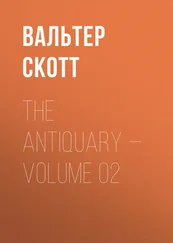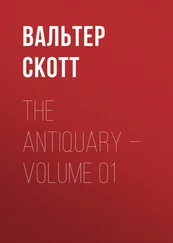Вальтер Скотт - Waverley Novels — Volume 12
Здесь есть возможность читать онлайн «Вальтер Скотт - Waverley Novels — Volume 12» — ознакомительный отрывок электронной книги совершенно бесплатно, а после прочтения отрывка купить полную версию. В некоторых случаях можно слушать аудио, скачать через торрент в формате fb2 и присутствует краткое содержание. Жанр: foreign_antique, foreign_prose, Альтернативная история, на английском языке. Описание произведения, (предисловие) а так же отзывы посетителей доступны на портале библиотеки ЛибКат.
- Название:Waverley Novels — Volume 12
- Автор:
- Жанр:
- Год:неизвестен
- ISBN:нет данных
- Рейтинг книги:5 / 5. Голосов: 1
-
Избранное:Добавить в избранное
- Отзывы:
-
Ваша оценка:
- 100
- 1
- 2
- 3
- 4
- 5
Waverley Novels — Volume 12: краткое содержание, описание и аннотация
Предлагаем к чтению аннотацию, описание, краткое содержание или предисловие (зависит от того, что написал сам автор книги «Waverley Novels — Volume 12»). Если вы не нашли необходимую информацию о книге — напишите в комментариях, мы постараемся отыскать её.
Waverley Novels — Volume 12 — читать онлайн ознакомительный отрывок
Ниже представлен текст книги, разбитый по страницам. Система сохранения места последней прочитанной страницы, позволяет с удобством читать онлайн бесплатно книгу «Waverley Novels — Volume 12», без необходимости каждый раз заново искать на чём Вы остановились. Поставьте закладку, и сможете в любой момент перейти на страницу, на которой закончили чтение.
Интервал:
Закладка:
To speak as of an animated substance, if Constantine could have regenerated his new metropolis, by transfusing into it the vital and vivifying principles of old Rome, — that brilliant spark no longer remained for Constantinople to borrow, or for Rome to lend.
In one most important circumstance, the state of the capital of Constantine had been totally changed, and unspeakably to its advantage. The world was now Christian, and, with the Pagan code, had got rid of its load of disgraceful superstition. Nor is there the least doubt, that the better faith produced its natural and desirable fruits in society, in gradually ameliorating the hearts, and taming the passions, of the people. But while many of the converts were turning meekly towards their new creed, some, in the arrogance of their understanding, were limiting the Scriptures by their own devices, and others failed not to make religious character or spiritual rank the means of rising to temporal power. Thus it happened at this critical period, that the effects of this great change in the religion of the country, although producing an immediate harvest, as well as sowing much good seed which was to grow hereafter, did not, in the fourth century, flourish so as to shed at once that predominating influence which its principles might have taught men to expect.
Even the borrowed splendour, in which Constantine decked his city, bore in it something which seemed to mark premature decay. The imperial founder, in seizing upon the ancient statues, pictures, obelisks, and works of art, acknowledged his own incapacity to supply their place with the productions of later genius; and when the world, and particularly Rome, was plundered to adorn Constantinople, the Emperor, under whom the work was carried on, might be compared to a prodigal youth, who strips an aged parent of her youthful ornaments, in order to decorate a flaunting paramour, on whose brow all must consider them as misplaced.
Constantinople, therefore, when in 324 it first arose in imperial majesty out of the humble Byzantium, showed, even in its birth, and amid its adventitious splendour, as we have already said, some intimations of that speedy decay to which the whole civilised world, then limited within the Roman empire, was internally and imperceptibly tending. Nor was it many ages ere these prognostications of declension were fully verified.
In the year 1080, Alexius Comnenus [Footnote: See Gibbon, Chap. xlviii, for the origin and early history of the house of the Comneni.] ascended the throne of the Empire; that is, he was declared sovereign of Constantinople, its precincts and dependencies; nor, if he was disposed to lead a life of relaxation, would the savage incursions of the Scythians or the Hungarians frequently disturb the imperial slumbers, if limited to his own capital. It may be supposed that this safety did not extend much farther; for it is said that the Empress Pulcheria had built a church to the Virgin Mary, as remote as possible from the gate of the city, to save her devotions from the risk of being interrupted by the hostile yell of the barbarians, and the reigning Emperor had constructed a palace near the same spot, and for the same reason.
Alexius Comnenus was in the condition of a monarch who rather derives consequence from the wealth and importance of his predecessors, and the great extent of their original dominions, than from what remnants of fortune had descended to the present generation. This Emperor, except nominally, no more ruled over his dismembered provinces, than a half-dead horse can exercise power over those limbs, on which the hooded crow and the vulture have already begun to settle and select their prey.
In different parts of his territory, different enemies arose, who waged successful or dubious war against the Emperor; and, of the numerous nations with whom he was engaged in hostilities, whether the Franks from the west, the Turks advancing from the east, the Cumans and Scythians pouring their barbarous numbers and unceasing storm of arrows from the north, and the Saracens, or the tribes into which they were divided, pressing from the south, there was not one for whom the Grecian empire did not spread a tempting repast. Each of these various enemies had their own particular habits of war, and a way of manoeuvring in battle peculiar to themselves. But the Roman, as the unfortunate subject of the Greek empire was still called, was by far the weakest, the most ignorant, and most timid, who could be dragged into the field; and the Emperor was happy in his own good luck, when he found it possible to conduct a defensive war on a counterbalancing principle, making use of the Scythian to repel the Turk, or of both these savage people to drive back the fiery-footed Frank, whom Peter the Hermit had, in the time of Alexius, waked to double fury, by the powerful influence of the crusades.
If, therefore, Alexius Comnenus was, during his anxious seat upon the throne of the East, reduced to use a base and truckling course of policy — if he was sometimes reluctant to fight when he had a conscious doubt of the valour of his troops — if he commonly employed cunning and dissimulation instead of wisdom, and perfidy instead of courage — his expedients were the disgrace of the age, rather than his own.
Again, the Emperor Alexius may be blamed for affecting a degree of state which was closely allied to imbecility. He was proud of assuming in his own person, and of bestowing upon others, the painted show of various orders of nobility, even now, when the rank within the prince's gift was become an additional reason for the free barbarian despising the imperial noble. That the Greek court was encumbered with unmeaning ceremonies, in order to make amends for the want of that veneration which ought to have been called forth by real worth, and the presence of actual power, was not the particular fault of that prince, but belonged to the system of the government of Constantinople for ages. Indeed, in its trumpery etiquette, which provided rules for the most trivial points of a man's behaviour during the day, the Greek empire resembled no existing power in its minute follies, except that of Pekin; both, doubtless, being influenced by the same vain wish, to add seriousness and an appearance of importance to objects, which, from their trivial nature, could admit no such distinction.
Yet thus far we must justify Alexius, that humble as were the expedients he had recourse to, they were more useful to his empire than the measures of a more proud and high-spirited prince might have proved in the same circumstances. He was no champion to break a lance against the breast-plate of his Frankish rival, the famous Bohemond of Antioch,[Footnote: Bohemond, son of Robert Guiscard, the Norman conqueror of Apulia, Calabria, and Sicily, was, at the time when the first crusade began, Count of Tarentum. Though far advanced in life, he eagerly joined the expedition of the Latins, and became Prince of Antioch. For details of his adventures, death, and extraordinary character, see Gibbon, chap. lix, and Mills' History of the Crusades, vol. i.] but there were many occasions on which he hazarded his life freely; and, so far as we can see, from a minute perusal of his achievements, the Emperor of Greece was never so dangerous "under shield," as when any foeman desired to stop him while retreating from a conflict in which he had been worsted.
But, besides that he did not hesitate, according to the custom of the time, at least occasionally, to commit his person to the perils of close combat, Alexius also possessed such knowledge of a general's profession, as is required in our modern days. He knew how to occupy military positions to the best advantage, and often covered defeats, or improved dubious conflicts, in a manner highly to the disappointment of those who deemed that the work of war was done only on the field of battle.
Читать дальшеИнтервал:
Закладка:
Похожие книги на «Waverley Novels — Volume 12»
Представляем Вашему вниманию похожие книги на «Waverley Novels — Volume 12» списком для выбора. Мы отобрали схожую по названию и смыслу литературу в надежде предоставить читателям больше вариантов отыскать новые, интересные, ещё непрочитанные произведения.
Обсуждение, отзывы о книге «Waverley Novels — Volume 12» и просто собственные мнения читателей. Оставьте ваши комментарии, напишите, что Вы думаете о произведении, его смысле или главных героях. Укажите что конкретно понравилось, а что нет, и почему Вы так считаете.












